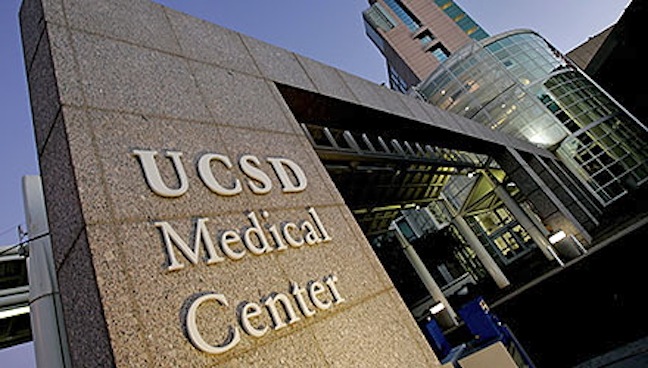Daily Business Report-Sept. 23, 2015
UCSD-Led Consortium Awarded $13 Million
For Autism Stem Cell-Based Technologies
GenomeWeb
The National Institutes of Health has awarded a five-year, $13 million grant to a public-private research consortium to develop and disseminate stem cell-based technologies and assays to study autism spectrum disorder and other mental health diseases.
Gene Yeo, an associate professor of cellular and molecular medicine at the UC San Diego School of Medicine, and a founding member of the Institute for Genomic Medicine, is principal investigator on the project.
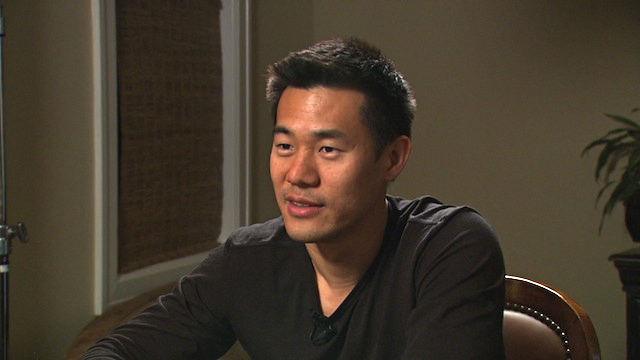
Other collaborators include Alysson Muotri and Larry Goldstein, both of the UCSD School of Medicine; Shelley Halpain of UCSD’s biology department; and Edward Callaway of the Salk Institute for Biological Studies. Goldstein is also director of both the UCSD Stem Cell Program and Sanford Stem Cell Clinical Center, with which four of the five academic researchers are affiliated.
Human induced pluripotent stem cells generated from patient tissue provide a promising cellular resource for understanding genetic and cellular variation in ASD and related disorders because they harbor individual genomic patterns of variation that contribute to or cause these disorders, the consortium noted in a statement.
However, these cells often generate variable findings due to additional differences in the genomic makeup of patient cells. The San Diego researchers hope to overcome these limitations by first introducing disease-relevant genomic variations into a single genomic background, then replicating these technologies across different labs before they are considered robust enough for public distribution.
“The idea is to build computational and molecular tools and cellular resources that are open source, accessible, give reproducible results, and are fundamentally useful to stem cell scientists,” Yeo said in a statement.
Private partners in the consortium include Fluidigm and Becton Dickinson’s BD Biosciences unit.
“Single-cell methods are key to creation of standardized stem cell-based tools to meet critical mental health needs,” Robert Jones, chief technology officer for genomics at Fluidigm, said in a statement. Jones also noted that the Yeo lab was one of the first test sites for Fluidigm’s C1 single-cell autoprep system, which led to the establishment of a single-cell core facility at the Sanford center.
___________________________________________
Redevelopment Bill Will Return
$64 Million to City of San Diego
City News Service
San Diego Mayor Kevin Faulconer Tuesday applauded Gov. Jerry Brown for signing a bill that streamlines the state process for abolishing redevelopment agencies.
Faulconer, a strong proponent of the old redevelopment process, said the signing of Senate Bill 107 will return $64 million in funding to San Diego. The mayor also said it will help disadvantaged families and communities in the city by increasing funding for affordable housing.
“It’s a big boost that will help the city rebuild our neighborhoods and create more opportunities for low-income San Diegans to succeed,” Faulconer said. “I thank the many
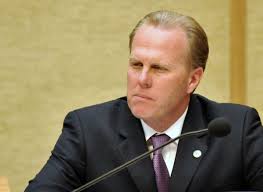
voices in and out of the Legislature who were advocating on the city’s behalf on this issue, including Speaker (Toni) Atkins, who brokered the changes that had to be made for this to become a reality and for this badly needed money to be repaid.”
Redevelopment agencies were abolished four years ago at Gov. Brown’s behest in order to put more money in the general funds of local governments, which were financially struggling with the effects of the recession.
Faulconer defended the agencies, saying the one in San Diego was chiefly responsible for the revival of Downtown, which he used to represent on the City Council.
The agencies made their money by receiving the increased amount of tax revenue generated by their projects. That income paid for new projects in their areas, with a percentage designated for affordable housing.
Advocates for affordable housing have been looking ever since for a new funding source, while local governments have struggled in dealing with the state Department of Finance to determine which leftover projects remained eligible for funding.
“This is an important bill that helps local governments wind down the process of dissolving their redevelopment agencies, and, as that happens, communities across California will be able to access new tools to promote economic development and create jobs,” Atkins said.
The bill, brought forth on the final day of the legislative session, was expected to have varying impacts on different cities.
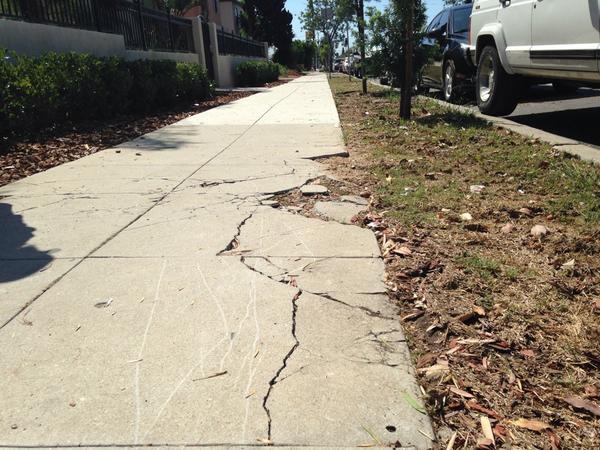
City Staff Directed to Develop
Plan for Sidewalk Repairs
City News Service
The City Council voted 7-0 Tuesday to have staff determine a timeline for fixing 85,000 damaged sidewalk locations in San Diego and incorporate them into a multi-year capital improvement program that’s being developed.
The final results of a condition assessment of the city’s sidewalks determined it will cost somewhere around $46.4 million to make all of the needed repairs.
In the city’s 4,500-plus miles of sidewalks, student engineers from San Diego State University and UC San Diego located the problem areas, which consisted of damage from tree roots, cracks, and panels that had settled or been raised by the underlying dirt.
The desire to repair the sidewalks are just a small part in the city’s multibillion-dollar backlog of infrastructure needs, which include roadways rated to be in poor condition to buildings in need of repairs.
The issue of how to fix the sidewalks is made murky by long-established state law that places the responsibility for making repairs on the adjacent property owner. However, the City Council in 1974 adopted a policy to have the city split costs 50-50 under certain circumstances that are out of the property owners’ control.
“We’re kind of in sidewalk purgatory,” said Councilman Mark Kersey, who chairs the Infrastructure Committee.
Staff was directed to return to his committee in January with a more precise repair plan. Kersey said his goal was to get the sidewalks fixed first, then reconsider the council’s policy toward the property owners.
The city not only has the repair cost issue to deal with, but also liability. According to the City Attorney’s Office, property owners have used current policy to deflect liability onto the city in trip-and-fall cases.
City Council Confirms
San Diego’s New Fire Chief
City News Service

The City Council Tuesday confirmed the appointment of Brian Fennessy as the 17th chief of the San Diego Fire-Rescue Department.
Fennessy, currently an assistant SDFRD chief, was selected by Mayor Kevin Faulconer nearly three weeks ago to replace Javier Mainar, who is retiring on Nov. 12. The mayor said it was important to set up “a smooth transition” sooner rather than later.
The 56-year-old Fennessy joined the department in 1990 after previously working for the U.S. Forest Service. He is in charge of emergency operations and is credited with strengthening the SDFRD’s helicopter firefighting.
A 38-year veteran, he oversees all 48 fire stations and their personnel, emergency medical services, special operations and city lifeguards.
Faulconer said he looked forward to the incoming chief building new fire stations and increasing racial and gender diversity within the ranks.
Fennessy echoed those goals and said he hoped to improve fire safety in so-called “wildland interface areas,” where neighborhoods back up against hillsides, canyons and other open space.
The appointment also received support from the firefighters’ union, Supervisor Ron Roberts and Rep. Scott Peters, D-San Diego, who flew in from Washington, D.C., to attend the meeting.
Mainar, who became chief six years ago and is stepping down after a 35- year career with the SDFRD, was given a long standing ovation by the crowd.
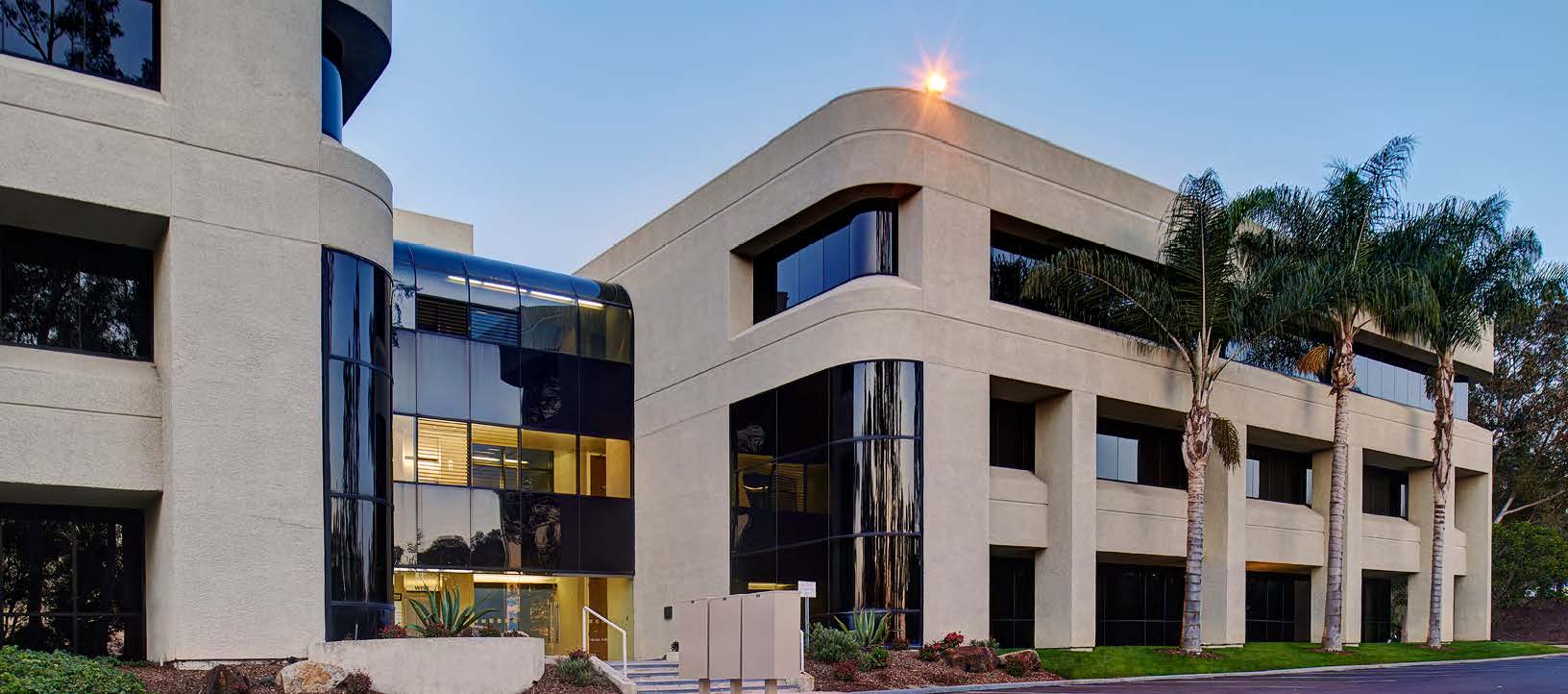
Sorrento Ridge Corporate Center Sold
Houston-based Boxer Property has purchased Sorrento Ridge Corporate Center, a three-story, atrium-style office property at 7220 Trade St. in San Diego. The property has more than 100,000 square feet of office space. The financial terms were not disclosed.
USD to Co-Sponsor Cal-Israel
Campus Innovation Expo
The University of San Diego Shiley-Marcos School of Engineering will host and co-sponsor the Cal-Israel Campus Innovation Expo in 2016.
The annual commerce and educational expo showcases the newest Israeli technologies and products across multiple industries, connecting start-ups and companies, investors, faculty and business leaders in San Diego.
The event will feature a high-level conference and expo focusing on emerging technology and science and provide exhibitors with “one-stop” marketing, legal, and business development solutions in the U.S. and Israel. Qualifying exhibitors must have developed Israeli technologies or products across the key Southern California industries including high technology, medicine and bio pharmaceuticals, renewable green energy, water conservation and agriculture.
Illumina Joins WIN Consortium
GenomeWeb
San Diego-based Illumina has joined the Worldwide Innovative Networking (WIN) Consortium, a network of academic, industry, not-for-profit, and insurance entities collaborating on personalized cancer care.
The WIN Consortium was founded in 2010 and its partners include France’s Institut Gustave Roussy, the University of Texas MD Anderson Cancer Center, GE Healthcare, Agilent Technologies, Pfizer, AstraZeneca, Foundation Medicine, Blue Cross Blue Shield, and 25 academic centers in 17 countries.
Among its initiatives is the WIN Therapeutics (WINTHER) project, which launched a couple of years ago and aims to tailor cancer treatments based on genetic analysis of patients.
John Mendelsohn, chairman of the WIN Consortium and the director of the Khalifa Institute for Personalized Cancer Therapy at MD Anderson Cancer Center, said in a statement that Illumina’s “expertise will be invaluable as we work to accelerate the pace and reduce the cost of translating novel cancer treatments to the bedside by developing and applying, through worldwide clinical trials, the most promising advances in genomic-based cancer research.”
Personnel Announcements
Julie Robson Joins KCM Group

Real estate executive Julie Robson has joined KCM Group as director of business development.
Robson will be responsible for developing and implementing strategic business goals for KCM Group, as well as managing key existing client relationships and creating new strategic alliances.
Prior to joining KCM Group, Robson was a business development executive for Chicago Title. She is involved with the Building Industry Association, Urban Land Institute, and is a member of the Southern California Leads Group.
Procopio Names Managing Director of Subsidiary
Ruprecht von Buttlar has been named managing director of Procopio Business Advisors LLC, a subsidiary of Procopio, Cory, Hargreaves & Savitch. He is charged with growing the breadth and reach of the non-legal consulting unit, and will oversee Procopio’s LaunchPad, an incubator-style program supporting technology entrepreneurs and start-ups.
“As lawyers, we have long recognized that many of our clients require professional business advice as well as legal representation,” said Tom Turner, Procopio’s managing partner. “PBA is able to deliver value beyond the practice of law and to expand our reach to emerging and mid-sized businesses in San Diego, Silicon Valley, Austin and other markets.”
Prior to joining PBA, von Buttlar held senior level positions at many companies, including Musicmatch Inc./Yahoo, Aegis Broadband; Scientific Atlanta; and Nortel Networks, among others.
For the last 9 years he served as vice president of business creation and development at CONNECT.
Lee & Associates Hires Senior Vice President
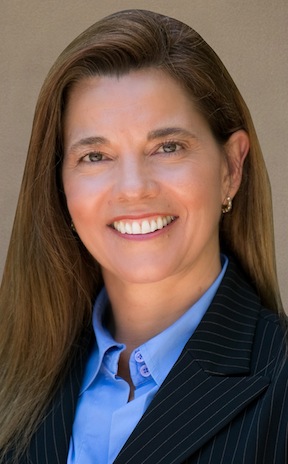
Lee & Associates has hired commercial real estate veteran Kelly Nicholls as a senior vice president.
Nicholls entered the real estate industry after receiving a bachelor’s degree in Political Economies of Industrial Societies / Economics from the University of California, Berkeley. Prior to joining Lee & Associates, she was awarded Industrial Broker of the Year and multiple Top Producer recognitions.
Nicholls is currently actively involved in community organizations including MIT (military in transition), CREW (Commercial Real Estate Women), Maritime Alliance, San Diego North Economic Development Corp., San Diego Chamber of Commerce, and many others.

